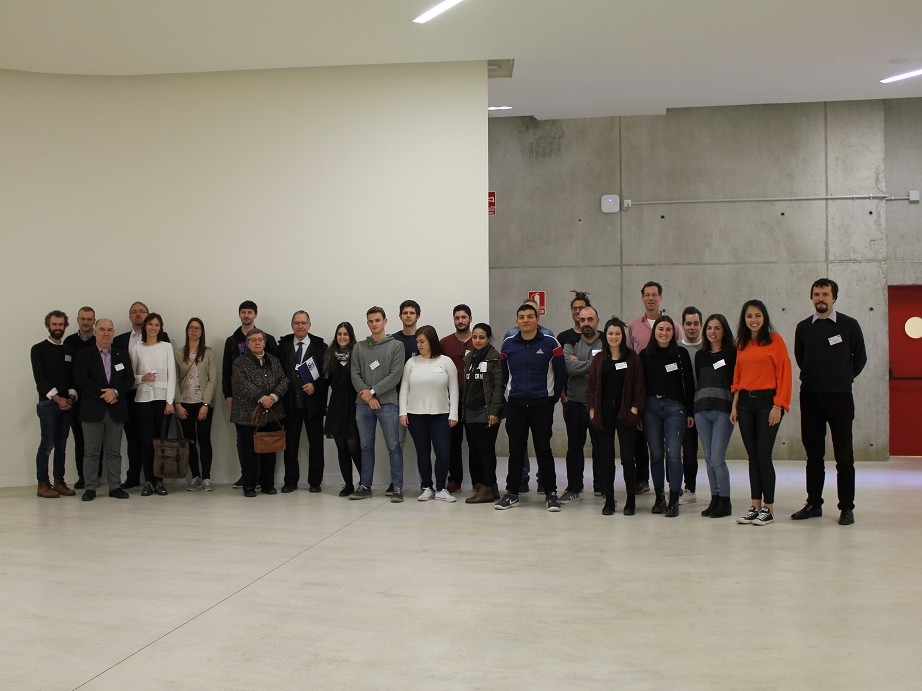SINE2020’s Neutrons for the Biotech Industry Event
28th-29th March 2019 Zaragoza, Spain Start: 12.30 Thursday 28th March 2019 End: 13.30 Friday 29th March 2019 Neutrons are a non-destructive way of investigating biological and biotechnological materials. They can be used to study membranes, interfaces, surface morphology, solubility, macroscopic properties, crystal structure, colloids and much more. Neutrons can also locate individual hydrogen atoms on biological molecules and determine interactions between drug-molecules and their binding sites in the target. About 25 participants joined us at the Aragon Materials Science Institute, ICMA (CSIC – University of Zaragoza) for SINE2020’s Neutrons for the Biotech Industry event where they found out about how neutrons can help companies and scientific research. Experts from the field of neutron scattering introduced several examples in their presentations and discussed particular questions in topic-related working groups. Participants also learned about SINE2020’s free proof-of-concept/feasibility studies. Presentations included: Neutron Scattering as a Versatile Tool to Study Structure and Dynamics of Proteins Andreas Stadler, Forshungszentrum Jülich, Germany Neutron scattering of interpenetrating polymer networks (IPNs) as medical devices Gregory Smith, Neils Bohr Institute, Denmark Rational design of food processing methods with aid of neutron scattering Wim Bouwman, Technical University Delft, the Netherlands Neutron Scattering – A versatile tool to better understand photosynthetic adaptation, yoghurt fermentation and chilli delivery Gergely Nagy, MTA-EK, Hungary Outside the box: Synchrotron Light for Biotechnology Nuria Valls Vidal, Alba Synchrotron, Spain Workshops: Industrial Access modes to Neutron Sources and Synchrotrons Synchrotron Light for Biotechnology Neutron scattering on polymer networks Structure and dynamics of proteins Fruitful discussions on how to find out if your problems can be investigated with neutrons; how to get beam access (free and paid for); who owns the Intellectual Property (IP); sample preparation; how detailed measurements can be and what the differences and relative advantages are of x-ray techniques versus neutron techniques, all created a productive and inquisitive atmosphere. Participants left the event enthusiastic and excited about the potential of using neutrons to further their research. Many of the delegates were local academic researchers in Biotechnology – a field which often attracts collaborations and funded projects from industrial companies. When academia and industry mix, there can be many areas of division between the two in relation to IP, the “risk” of a project and what constitutes “interesting” science. Gaining insight into these conflicts is important for large scale facilities if they want to attract industrial users. Finally, the event also opened up the potential of neutron and x-ray techniques to new academic users. There are many fields of research (polymers, proteins, food science) that would benefit from innovative measurements but at present only a few researchers know about them! Large scale facilities would also benefit from attracting people from these new scientific fields too. A huge thank you to our Organising committee from ICMA, University of Zaragoza, TU Munich and Helmholtz-Zentrum Geesthacht.



